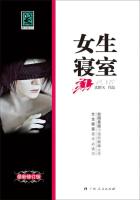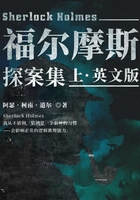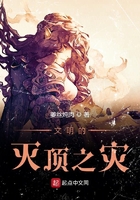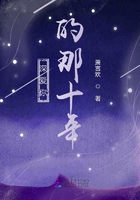Mr. Pumblechook's premises in the High Street of the market town, were of a peppercorny and farinaceous character, as the premises of a cornchandler and seedsman should be. It appeared to me that he must be a very happy man indeed, to have so many little drawers in his shop; and I wondered when I peeped into one or two on the lower tiers, and saw the tied-up brown paper packets inside, whether the flower-seeds and bulbs ever wanted of a fine da to break out of those jails, and bloom.
It was in the early morning after my arrival that I entertained this speculation. On the previous night, I had been sent straight to bed in an attic with a sloping roof, which was so low in the corner where the bedstead was, that I calculated the tiles as being within a foot of my eyebrows. In the same early morning,I discovered a singular affinity between seeds and corduroys. Mr. Pumblechook wore corduroys, and so did his shopman; and somehow, there was a general air and flavor about the corduroys, so much in the nature of seeds, and a general air and flavor about the seeds,so much in the nature of corduroys, that I hardly knew which was which. The same opportunity served me for noticing that Mr. Pumblechook appeared to conduct his business by looking across the street at the saddler,who appeared to transact his business by keeping his eye on the coachmaker, who appeared to get on in life by putting his hands in his pockets and contemplating the baker, who in his turn folded his arms and stared at the grocer, who stood at his door and yawned at the chemist. The watchmaker, always poring over a little desk with a magnifying-glass at his eye, and always inspected by a group of smock-frocks poring over him through the glass of his shop-window, seemed to be about the only person in the High Street whose trade engaged his attention.
Mr. Pumblechook and I breakfasted at eight o'clock in the parlor behind the shop, while the shopman took his mug of tea and hunch of bread and butter on a sack of peas in the front premises. I considered Mr. Pumblechook wretched company. Besides being possessed by my sister's idea that a mortifying and penitential character ought to be imparted to my diet,—besides giving me as much crumb as possible in combination with as little butter, and putting such a quantity of warm water into my milk that it would have been more candid to have left the milk out altogether,—his conversation consisted of nothing but arithmetic. On my politely bidding him Good morning, he said, pompously, "Seven times nine,boy?" And how should I be able to answer, dodged in that way, in a strange place, on an empty stomach!I was hungry, but before I had swallowed a morsel,he began a running sum that lasted all through the breakfast. "Seven?" "And four?" "And eight?" "And six?" "And two?" "And ten?" And so on. And after each figure was disposed of, it was as much as I could do to get a bite or a sup, before the next came; while he sat at his ease guessing nothing, and eating bacon and hot roll, in (if I may be allowed the expression) a gorging and gormandizing manner.
For such reasons, I was very glad when ten o'clock came and we started for Miss Havisham's; though I was not at all at my ease regarding the manner in which I should acquit myself under that lady's roof. Within a quarter of an hour we came to Miss Havisham's house, which was of old brick, and dismal, and had a great many iron bars to it. Some of the windows had been walled up; of those that remained, all the lower were rustily barred. There was a courtyard in front, and that was barred; so we had to wait, after ringing the bell, until some one should come to open it. While we waited at the gate, I peeped in (even then Mr. Pumblechook said, "And fourteen?"but I pretended not to hear him), and saw that at the side of the house there was a large brewery. No brewing was going on in it, and none seemed to have gone on for a long long time.
A window was raised, and a clear voice demanded"What name?" To which my conductor replied,"Pumblechook." The voice returned, "Quite right," and the window was shut again, and a young lady came across the court-yard, with keys in her hand.
"This," said Mr. Pumblechook, "is Pip."
"This is Pip, is it?" returned the young lady, who was very pretty and seemed very proud; "come in, Pip."
Mr. Pumblechook was coming in also, when she stopped him with the gate.
"Oh!" she said. "Did you wish to see Miss Havisham?"
"If Miss Havisham wished to see me," returned Mr.Pumblechook, discomfited
"Ah!" said the girl; "but you see she don't."
She said it so finally, and in such an undiscussible way, that Mr. Pumblechook, though in a condition of ruffled dignity, could not protest. But he eyed me severely,—as if I had done anything to him!—and departed with the words reproachfully delivered:"Boy! Let your behavior here be a credit unto them which brought you up by hand!" I was not free from apprehension that he would come back to propound through the gate, "And sixteen?" But he didn't.
My young conductress locked the gate, and we went across the courtyard. It was paved and clean,but grass was growing in every crevice. The brewery buildings had a little lane of communication with it,and the wooden gates of that lane stood open, and all the brewery beyond stood open, away to the high enclosing wall; and all was empty and disused. The cold wind seemed to blow colder there than outside the gate; and it made a shrill noise in howling in and out at the open sides of the brewery, like the noise of wind in the rigging of a ship at sea.
She saw me looking at it, and she said, "You could drink without hurt all the strong beer that's brewed there now, boy."
"I should think I could, miss," said I, in a shy way.
"Better not try to brew beer there now, or it would turn out sour, boy; don't you think so?"
"It looks like it, miss."
"Not that anybody means to try," she added, "for that's all done with, and the place will stand as idle as it is till it falls. As to strong beer, there's enough of it in the cellars already, to drown the Manor House."
"Is that the name of this house, miss?"
"One of its names, boy."
"It has more than one, then, miss?"
"One more. Its other name was Satis; which is Greek, or Latin, or Hebrew, or all three—or all one to me—for enough."
"Enough House," said I; "that's a curious name,miss."
"Yes," she replied; "but it meant more than it said. It meant, when it was given, that whoever had this house could want nothing else. They must have been easily satisfied in those days, I should think. But don't loiter,boy."
Though she called me "boy" so often, and with a carelessness that was far from complimentary, she was of about my own age. She seemed much older than I, of course, being a girl, and beautiful and selfpossessed; and she was as scornful of me as if she had been one-and-twenty, and a queen.
We went into the house by a side door, the great front entrance had two chains across it outside,—and the first thing I noticed was, that the passages were all dark, and that she had left a candle burning there. She took it up, and we went through more passages and up a staircase, and still it was all dark, and only the candle lighted us.
At last we came to the door of a room, and she said,"Go in."
I answered, more in shyness than politeness, "After you, miss."
To this she returned: "Don't be ridiculous, boy; I am not going in." And scornfully walked away, and—what was worse—took the candle with her.
This was very uncomfortable, and I was half afraid.However, the only thing to be done being to knock at the door, I knocked, and was told from within to enter.I entered, therefore, and found myself in a pretty large room, well lighted with wax candles. No glimpse of daylight was to be seen in it. It was a dressing-room,as I supposed from the furniture, though much of it was of forms and uses then quite unknown to me.But prominent in it was a draped table with a gilded looking-glass, and that I made out at first sight to be a fine lady's dressing-table
Whether I should have made out this object so soon if there had been no fine lady sitting at it, I cannot say.In an arm-chair, with an elbow resting on the table and her head leaning on that hand, sat the strangest lady I have ever seen, or shall ever see.
She was dressed in rich materials,—satins, and lace,and silks,—all of white. Her shoes were white. And she had a long white veil dependent from her hair, and she had bridal flowers in her hair, but her hair was white.Some bright jewels sparkled on her neck and on her hands, and some other jewels lay sparkling on the table. Dresses, less splendid than the dress she wore,and half-packed trunks, were scattered about. She had not quite finished dressing, for she had but one shoe on,—the other was on the table near her hand,—her veil was but half arranged, her watch and chain were not put on, and some lace for her bosom lay with those trinkets, and with her handkerchief, and gloves,and some flowers, and a Prayer-Book all confusedly heaped about the looking-glass.
It was not in the first few moments that I saw all these things, though I saw more of them in the first
moments than might be supposed. But I saw that everything within my view which ought to be white,
had been white long ago, and had lost its lustre and was faded and yellow. I saw that the bride within the
bridal dress had withered like the dress, and like the flowers, and had no brightness left but the brightness
of her sunken eyes. I saw that the dress had been put upon the rounded figure of a young woman, and that
the figure upon which it now hung loose had shrunk to skin and bone. Once, I had been taken to see some
ghastly waxwork at the Fair, representing I know not what impossible personage lying in state. Once, I had
been taken to one of our old marsh churches to see a skeleton in the ashes of a rich dress that had been
dug out of a vault under the church pavement. Now, waxwork and skeleton seemed to have dark eyes that
moved and looked at me. I should have cried out, if I could.
"Who is it?" said the lady at the table.
"Pip, ma'am."
"Pip?""Mr. Pumblechook's boy, ma'am. Come—to play.""Come nearer; let me look at you. Come close."It was when I stood before her, avoiding her eyes,that I took note of the surrounding objects in detail,and saw that her watch had stopped at twenty minutes to nine, and that a clock in the room had stopped at twenty minutes to nine."Look at me," said Miss Havisham. "You are not afraid of a woman who has never seen the sun since you were born?"
I regret to state that I was not afraid of telling the enormous lie comprehended in the answer "No."
"Do you know what I touch here?" she said, laying her hands, one upon the other, on her left side.
"Yes, ma'am." (It made me think of the young man.)
"What do I touch?"
"Your heart."
"Broken!"
She uttered the word with an eager look, and with strong emphasis, and with a weird smile that had a kind of boast in it. Afterwards she kept her hands there for a little while, and slowly took them away as if they were heavy.
"I am tired," said Miss Havisham. "I want diversion,and I have done with men and women. Play."
I think it will be conceded by my most disputatious reader, that she could hardly have directed an unfortunate boy to do anything in the wide world more difficult to be done under the circumstances
"I sometimes have sick fancies," she went on, "and I have a sick fancy that I want to see some play. There,there!" with an impatient movement of the fingers of her right hand; "play, play, play!"
For a moment, with the fear of my sister's working me before my eyes, I had a desperate idea of starting round the room in the assumed character of Mr.Pumblechook's chaise-cart. But I felt myself so unequal to the performance that I gave it up, and stood looking at Miss Havisham in what I suppose she took for a dogged manner, inasmuch as she said, when we had taken a good look at each other,—
"Are you sullen and obstinate?"
"No, ma'am, I am very sorry for you, and very sorry I can't play just now. If you complain of me I shall get into trouble with my sister, so I would do it if I could;but it's so new here, and so strange, and so fine—and melancholy—." I stopped, fearing I might say too much, or had already said it, and we took another look at each other.
Before she spoke again, she turned her eyes from me, and looked at the dress she wore, and at the dressing-table, and finally at herself in the lookingglass.
"So new to him," she muttered, "so old to me; so strange to him, so familiar to me; so melancholy to both of us! Call Estella."
As she was still looking at the reflection of herself, I thought she was still talking to herself, and kept quiet."Call Estella," she repeated, flashing a look at me. "You can do that. Call Estella. At the door."
To stand in the dark in a mysterious passage of an unknown house, bawling Estella to a scornful young lady neither visible nor responsive, and feeling it a dreadful liberty so to roar out her name, was almost as bad as playing to order. But she answered at last, and her light came along the dark passage like a star.
Miss Havisham beckoned her to come close, and took up a jewel from the table, and tried its effect upon her fair young bosom and against her pretty brown hair. "Your own, one day, my dear, and you will use it well. Let me see you play cards with this boy."
"With this boy? Why, he is a common laboring boy!"I thought I overheard Miss Havisham answer,—only it seemed so unlikely,—"Well? You can break his heart."
"What do you play, boy?" asked Estella of myself,with the greatest disdain.
"Nothing but beggar my neighbor, miss."
"Beggar him," said Miss Havisham to Estella. So we sat down to cards.
It was then I began to understand that everything in the room had stopped, like the watch and the clock,a long time ago. I noticed that Miss Havisham put down the jewel exactly on the spot from which she had taken it up. As Estella dealt the cards, I glanced at the dressing-table again, and saw that the shoe upon it, once white, now yellow, had never been worn. I glanced down at the foot from which the shoe was absent, and saw that the silk stocking on it, once white,now yellow, had been trodden ragged. Without this arrest of everything, this standing still of all the pale decayed objects, not even the withered bridal dress on the collapsed form could have looked so like graveclothes, or the long veil so like a shroud.
So she sat, corpse-like, as we played at cards;the frillings and trimmings on her bridal dress,looking like earthy paper. I knew nothing then of the discoveries that are occasionally made of bodies buried in ancient times, which fall to powder in the moment of being distinctly seen; but, I have often thought since, that she must have looked as if the admission of the natural light of day would have struck her to dust.
"He calls the knaves Jacks, this boy!" said Estella with disdain, before our first game was out. "And what coarse hands he has! And what thick boots!"
I had never thought of being ashamed of my hands before; but I began to consider them a very indifferent pair. Her contempt for me was so strong, that it became infectious, and I caught it.
She won the game, and I dealt. I misdealt, as was only natural, when I knew she was lying in wait for me to do wrong; and she denounced me for a stupid,clumsy laboring-boy.
"You say nothing of her," remarked Miss Havisham to me, as she looked on. "She says many hard things of you, but you say nothing of her. What do you think of her?"
"I don't like to say," I stammered.
"Tell me in my ear," said Miss Havisham, bending down.
"I think she is very proud," I replied, in a whisper.
"Anything else?"
"I think she is very pretty."
"Anything else?"
"I think she is very insulting." (She was looking at me then with a look of supreme aversion.)
"Anything else?"
"I think I should like to go home."
"And never see her again, though she is so pretty?"
"I am not sure that I shouldn't like to see her again,but I should like to go home now."
"You shall go soon," said Miss Havisham, aloud. "Play the game out."
Saving for the one weird smile at first, I should have felt almost sure that Miss Havisham's face could not smile. It had dropped into a watchful and brooding expression,—most likely when all the things about her had become transfixed,—and it looked as if nothing could ever lift it up again. Her chest had dropped,so that she stooped; and her voice had dropped, so that she spoke low, and with a dead lull upon her; altogether, she had the appearance of having dropped body and soul, within and without, under the weight of a crushing blow.
I played the game to an end with Estella, and she beggared me. She threw the cards down on the table when she had won them all, as if she despised them for having been won of me.
"When shall I have you here again?" said Miss Havisham. "Let me think."
I was beginning to remind her that to-day was Wednesday, when she checked me with her former impatient movement of the fingers of her right hand
"There, there! I know nothing of days of the week; I know nothing of weeks of the year. Come again after six days. You hear?"
"Yes, ma'am."
"Estella, take him down. Let him have something to eat, and let him roam and look about him while he eats. Go, Pip."
I followed the candle down, as I had followed the candle up, and she stood it in the place where we had found it. Until she opened the side entrance, I had fancied, without thinking about it, that it must necessarily be night-time. The rush of the daylight quite confounded me, and made me feel as if I had been in the candlelight of the strange room many hours.
"You are to wait here, you boy," said Estella; and disappeared and closed the door.
I took the opportunity of being alone in the courtyard to look at my coarse hands and my common boots.My opinion of those accessories was not favorable.They had never troubled me before, but they troubled me now, as vulgar appendages. I determined to ask Joe why he had ever taught me to call those picture-cards Jacks, which ought to be called knaves. I wished Joe had been rather more genteelly brought up, and then I should have been so too.
She came back, with some bread and meat and a little mug of beer. She put the mug down on the stones of the yard, and gave me the bread and meat without looking at me, as insolently as if I were a dog in disgrace. I was so humiliated, hurt, spurned, offended,angry, sorry,—I cannot hit upon the right name for the smart—God knows what its name was,—that tears started to my eyes. The moment they sprang there, the girl looked at me with a quick delight in having been the cause of them. This gave me power to keep them back and to look at her: so, she gave a contemptuous toss—but with a sense, I thought, of having made too sure that I was so wounded—and left me.
But when she was gone, I looked about me for a place to hide my face in, and got behind one of the gates in the brewery-lane, and leaned my sleeve against the wall there, and leaned my forehead on it and cried. As I cried, I kicked the wall, and took a hard twist at my hair; so bitter were my feelings, and so sharp was the smart without a name, that needed counteraction.
My sister's bringing up had made me sensitive. In the little world in which children have their existence whosoever brings them up, there is nothing so finely perceived and so finely felt as injustice. It may be only small injustice that the child can be exposed to;but the child is small, and its world is small, and its rocking-horse stands as many hands high, according to scale, as a big-boned Irish hunter. Within myself, I had sustained, from my babyhood, a perpetual conflict with injustice. I had known, from the time when I could speak, that my sister, in her capricious and violent coercion, was unjust to me. I had cherished a profound conviction that her bringing me up by hand gave her no right to bring me up by jerks. Through all my punishments, disgraces, fasts, and vigils, and other penitential performances, I had nursed this assurance;and to my communing so much with it, in a solitary and unprotected way, I in great part refer the fact that I was morally timid and very sensitive.
I got rid of my injured feelings for the time by kicking them into the brewery wall, and twisting them out of my hair, and then I smoothed my face with my sleeve, and came from behind the gate. The bread and meat were acceptable, and the beer was warming and tingling, and I was soon in spirits to look about me.
To be sure, it was a deserted place, down to the pigeon-house in the brewery-yard, which had been blown crooked on its pole by some high wind, and would have made the pigeons think themselves at sea,if there had been any pigeons there to be rocked by it.But there were no pigeons in the dove-cot, no horses in the stable, no pigs in the sty, no malt in the storehouse,no smells of grains and beer in the copper or the vat.All the uses and scents of the brewery might have evaporated with its last reek of smoke. In a by-yard,there was a wilderness of empty casks, which had a certain sour remembrance of better days lingering about them; but it was too sour to be accepted as a sample of the beer that was gone,—and in this respect I remember those recluses as being like most others.
Behind the furthest end of the brewery, was a rank garden with an old wall; not so high but that I could struggle up and hold on long enough to look over it,and see that the rank garden was the garden of the house, and that it was overgrown with tangled weeds,but that there was a track upon the green and yellow paths, as if some one sometimes walked there, and that Estella was walking away from me even then. But she seemed to be everywhere. For when I yielded to the temptation presented by the casks, and began to walk on them, I saw her walking on them at the end of the yard of casks. She had her back towards me,and held her pretty brown hair spread out in her two hands, and never looked round, and passed out of my view directly. So, in the brewery itself,—by which I mean the large paved lofty place in which they used to make the beer, and where the brewing utensils still were. When I first went into it, and, rather oppressed by its gloom, stood near the door looking about me, I saw her pass among the extinguished fires, and ascend some light iron stairs, and go out by a gallery high overhead, as if she were going out into the sky.
It was in this place, and at this moment, that a strange thing happened to my fancy. I thought it a strange thing then, and I thought it a stranger thing long afterwards. I turned my eyes—a little dimmed by looking up at the frosty light—towards a great wooden beam in a low nook of the building near me on my right hand, and I saw a figure hanging there by the neck. A figure all in yellow white, with but one shoe to the feet; and it hung so, that I could see that the faded trimmings of the dress were like earthy paper, and that the face was Miss Havisham's, with a movement going over the whole countenance as if she were trying to call to me. In the terror of seeing the figure, and in the terror of being certain that it had not been there a moment before, I at first ran from it, and then ran towards it. And my terror was greatest of all when I found no figure there
Nothing less than the frosty light of the cheerful sky, the sight of people passing beyond the bars of the court-yard gate, and the reviving influence of the rest of the bread and meat and beer, would have brought me round. Even with those aids, I might not have come to myself as soon as I did, but that I saw Estella approaching with the keys, to let me out. She would have some fair reason for looking down upon me, I thought, if she saw me frightened; and she would have no fair reason.
She gave me a triumphant glance in passing me,as if she rejoiced that my hands were so coarse and my boots were so thick, and she opened the gate, and stood holding it. I was passing out without looking at her, when she touched me with a taunting hand.
"Why don't you cry?"
"Because I don't want to."
"You do," said she. "You have been crying till you are half blind, and you are near crying again now."
She laughed contemptuously, pushed me out,and locked the gate upon me. I went straight to Mr.Pumblechook's, and was immensely relieved to find him not at home. So, leaving word with the shopman on what day I was wanted at Miss Havisham's again, I set off on the four-mile walk to our forge; pondering,as I went along, on all I had seen, and deeply revolving that I was a common laboring-boy; that my hands were coarse; that my boots were thick; that I had fallen into a despicable habit of calling knaves Jacks; that I was much more ignorant than I had considered myself last night, and generally that I was in a low-lived bad way.














